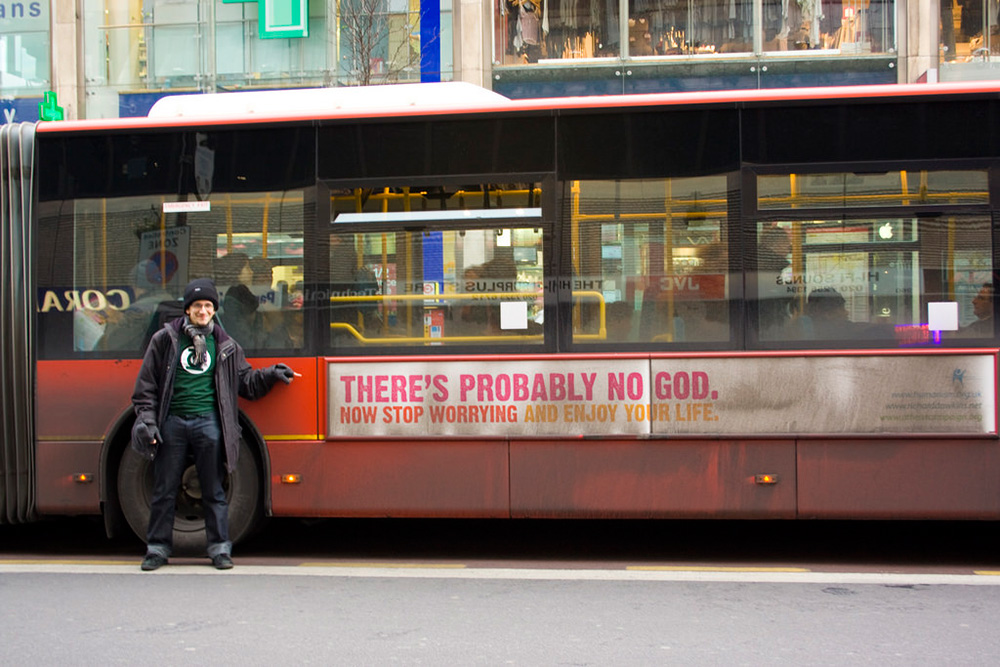The new NDP government’s announcement that it’s working to re-establish the province’s Human Rights Commission has been welcomed by those of us working to promote rights in our province.
The commissions in other provinces serve a vital function in promoting and educating about human rights. Its absence here for the past 15 years has arguably set us back compared to other provinces.
The government’s consultation, which runs until Nov. 17, gives us the opportunity to look more broadly at our province’s human rights regime and ask whether there are any gaps.
Our Human Rights Code aims to protect people from discrimination in housing, employment and service based on “race, colour, ancestry, place of origin, religion, marital status, family status, physical or mental disability, sex, sexual orientation, gender identity or expression, or age.”
But what about those without a religion?
Almost 70 per cent of British Columbians do not practise a religion or faith and a quarter do not believe in a higher power.
Yet pervasive anti-atheist bias remains in many corners of this province, particularly in smaller communities and in our health-care system.
Take, for instance, the case of Byron Wood. Wood was a nurse who sought treatment for substance use issues. To keep his job, he was required to attend a 12-step-based residential treatment program and follow up with mandatory attendance at Alcoholics Anonymous meetings.
For those who aren’t aware, half of those 12 steps involve God or a higher power. Wood, as an atheist, refused and instead asked for a secular (and evidence-based) treatment plan, but was denied and ultimately lost his job. He’s now filed a complaint with the province’s Human Rights Tribunal.
With only religion as a protected class in the Human Rights Code, atheists, like Wood, face an additional hurdle at a Human Rights Tribunal. When an atheist files a complaint, they awkwardly have to argue that they were discriminated because of a religion they do not profess. By contrast, the Charter of Rights and Freedoms (which applies to government actions) guarantees freedom of thought, conscience and belief in addition to religion.
So far, our courts and tribunals have generally concluded that this protection from discrimination based on religion includes the right not to have a religion forced upon you. But the Human Rights Code is effectively silent on the positive right to not practise a religion and, arguably because of this omission, officials have decided that atheists had no standing even to argue their case.
In Quebec, when Humanists filed a complaint with their province’s human rights commission over the right to perform marriages, they were told that since atheism and Humanism aren’t religions, they aren’t protected under Quebec’s Human Rights Code.
Here in B.C., when the BC Humanist Association applied to be able to perform legal marriages, we were denied because we didn’t classify as a religion. (Humanism is a worldview that promotes human dignity without appeals to the supernatural.)
Under Canadian case law, religion requires worship of a supernatural deity. This means that any of the 26 per cent of British Columbians who don’t believe in a higher power could be at risk of losing their job, being denied their home or facing a store with a “no atheists allowed” sign without recourse under B.C.’s human rights legislation.
Prior to the inclusion of “gender identity or expression” in the Human Rights Code in 2016, transgender individuals were not wholly unprotected. They could still make a claim of sex discrimination but faced an extra bar. The additional protections clarified the law and enshrined protections for transgender British Columbians.
By adding “non-religion” to the Human Rights Code, we can make the same clarification and ensure that not only are atheists free from having religions forced upon them but explicitly cannot be discriminated against simply for being nonreligious.
Such a step wouldn’t be wholly unprecedented. In April 2015, Madison, Wisconsin city council banned discrimination based on “religion or non-religion” among other protected classes. This was heralded as the first time atheists received explicit protections in any jurisdiction in the U.S. Later that year then-president Barack Obama signed an update to the International Religious Freedom Act to include “non-theists” and protections for the right not to practise a religion.
The Ontario Human Rights Code protects from discrimination based on “creed” rather than religion. This subtle difference was enough for the Ontario Human Rights Commission to specify in a 2015 policy that “creed may also include nonreligious belief systems.”
The government of B.C.’s consultation offers us the opportunity to provide clear protections for atheists and nonbelievers. This is why the BC Humanist Association has launched a petition to support this simple change.
Adding a protected class doesn’t right any wrongs in itself, but it makes the fight easier. ![]()
Read more: Rights + Justice, BC Politics
















Tyee Commenting Guidelines
Comments that violate guidelines risk being deleted, and violations may result in a temporary or permanent user ban. Maintain the spirit of good conversation to stay in the discussion.
*Please note The Tyee is not a forum for spreading misinformation about COVID-19, denying its existence or minimizing its risk to public health.
Do:
Do not: